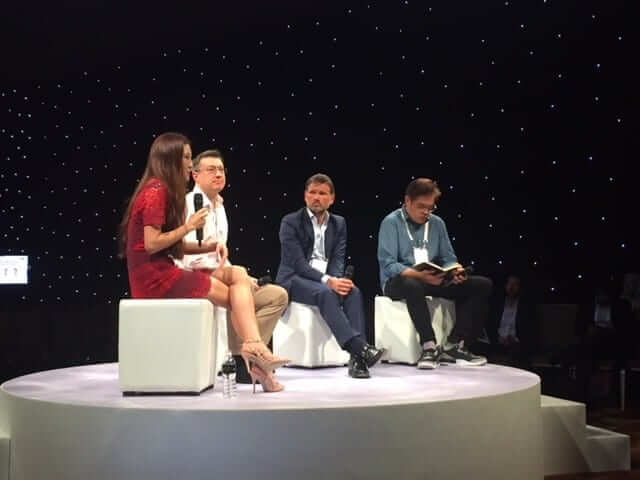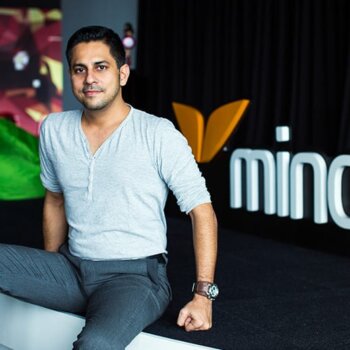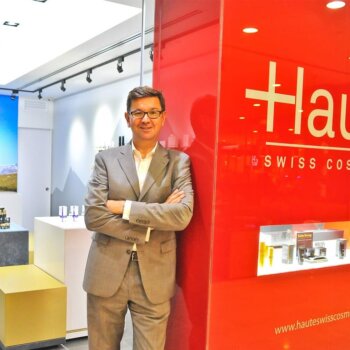I was at the Moon room in Money 2020 listening to Fintech startups pitching and learning from veteran entrepreneurs and now investors on what they look for before handing money over. This is some key areas to consider when you next enter a VC’s office
William Bao Bean
General Partner, SOSV, MD, MOX, MD, Chinaccelerator
William is a General Partner at SOSV, a US$300m venture capital fund known as “the Accelerator VC” where he is the Managing Director of Chinaccelerator, SOSV’s global Internet accelerator and the first accelerator in China and Managing Director of MOX, the mobile only accelerator with 130m smartphone users on its platform. SOSV is the #1 most active seed investor in the world according to TechCrunch Crunchbase.
Chinaccelerator charges equity of about 6% for the startups they take into their accelerator to help them scale users and scale across borders. They look for Startups which already break even. Over half of their startups have revenue already and raise rounds. With their placement in China, and the large demographic he said without a sweeping statement “ Some of the Minimum Viable Products that are tested elsewhere, we at Chinaccelerator, can do over a weekend”. We don’t sit on boards, we help them scale and turn them over to a VC that can take boards.
Jeffrey Paine
Managing Partner, Golden Gate Ventures
Jeffrey Paine is the founding partner of Golden Gate Ventures, an early stage technology venture capital fund based in Singapore investing in Southeast Asia with over US$70 million under management. Jeff started and manages the Founder Institute in Singapore where he is currently overseeing its expansion in Southeast Asia, and Japan. Since 2010 the Founder Institute in Singapore has graduated over 100 companies.
Jeffrey reminded the audience that it is harder to raise money currently. And anyone looking for Venture Funding, really need to align and target the right people. Rather than wait till you are fully ready, approach the VCs whenever. He personally wants to get to know the startup for 3-6 months and see them execute. As a general tendency entrepreneurs currently don’t talk to VCs enough, they seemd to be engrossed in their work. However there is a need to talk. Take time off your operations and
need to know people from different ranges in the funding.
Head of Corporate Venture Capital, Hanwha. Hanwha Group is one of the largest conglomerates in Korea and a GLOBAL FORTUNE 250 Company with 60 subsidiaries across 3 main pillars of businesses: Manufacturing · Construction, Finance (AUM of $140Bn), Service · Leisure, JinA Bae also chimed in with Jeffrey’s advice. Since she has to be an internal champion in her corporation, she needs to start such conversations early.
All agreed that they needed to see a startup deliver on their milestones. Once you can get the permission with VC to “spam” them with monthly update. Start that monthly update. This update should read: like datapoints over time. For example, we have achieved x, y, z in the business plan however we only have money for z. Can you help us fund x, something that is working but needs capital to grow. This allows the VCs to feel they know your company more. If they do not hear from you after too long, they assume in this startup race, you may have died!
What is the difference in Fintech Investing in Asia and elsewhere?
Hans de Back
Partner, Finch CapitalHans is a Partner of Finch Capital (previously Orange Growth Capital), an early stage thematic venture capital firm focusing on technology-enabled innovation that brings about the transformation of the financial services sector in Europe and on South East Asia. Hans was involved in the 18 investments Finch Capital made, which includes Zopa, Trussle and Cermati.
The Fintech in South East Asia is fragmented and the Millennial base larger than Europe. As a serial entrepreneur, who co – founded 3 global businesses (Telitas, TMG, CLIQ) with enterprise values totalling EUR 150m+ and took the companies from start-up to exit (IPO or trade sale), his advice is to Master one big market in South East Asia, like Indonesia, since Fintech is not as scalable as it is in Europe. There is money floating around – government, venture etc.
Who is right person to have on your cap table? Ensure you have an Industry expert, a Local Expert
and an Institution.
As things change every 6 months, do check in with what VCs are liking or disliking. Where’s the money? Singapore has funds, next Thailand and then Malaysia. And the latest funds are coming in from Japan and Korea. And Jeffrey predicts that in 18 months we will have more China funds in Singapore too. And now the Big unicorns like Grab and GO-JEK also investing.
JinA Bae says that in most instances, startups still need a warm introduction to enter Asia. For Corporate VCs do establish relationship with corporates early. They are keen on innovation and they have even 3 large corporates coming together in Korea rather than 1 CVC exclusively on a deal.




























